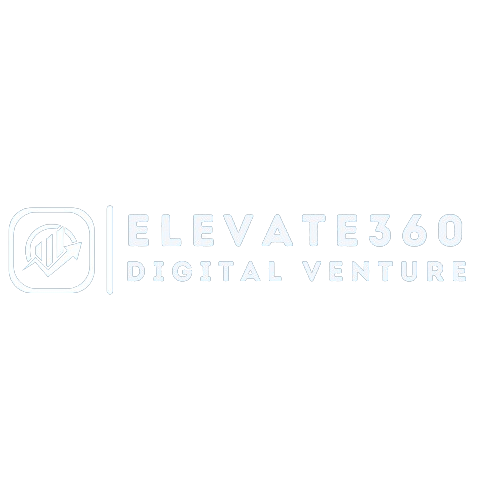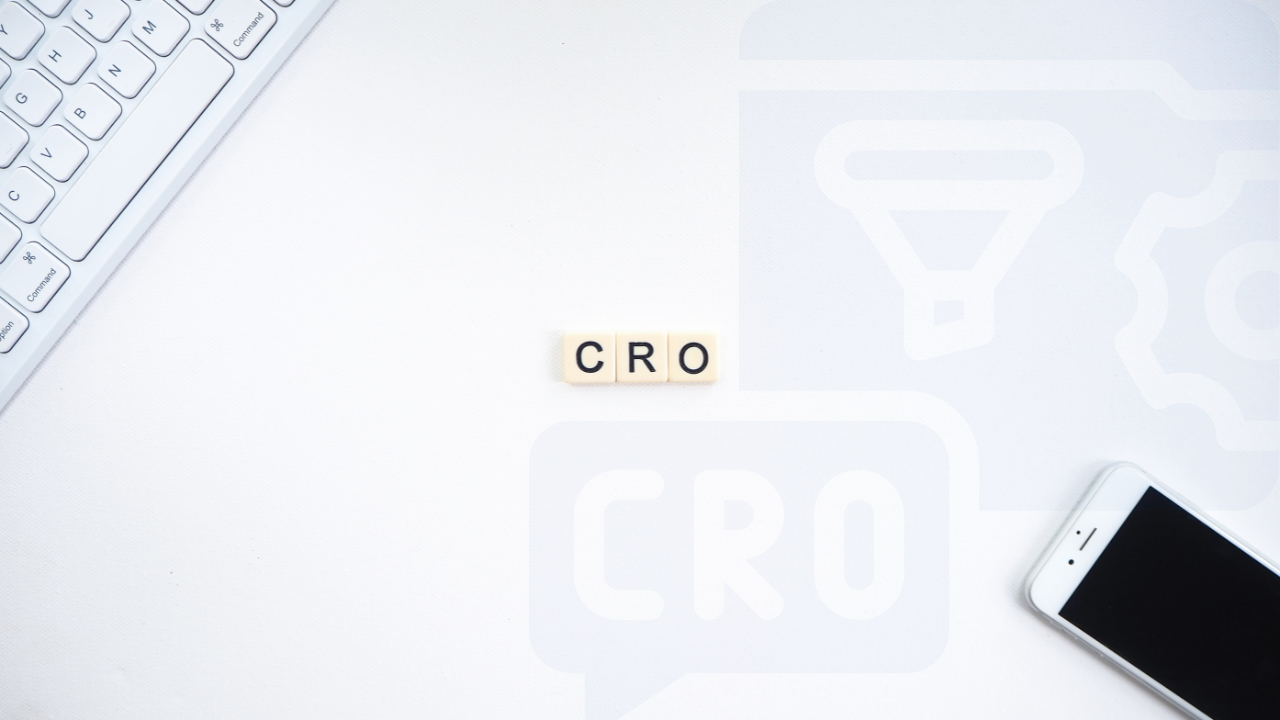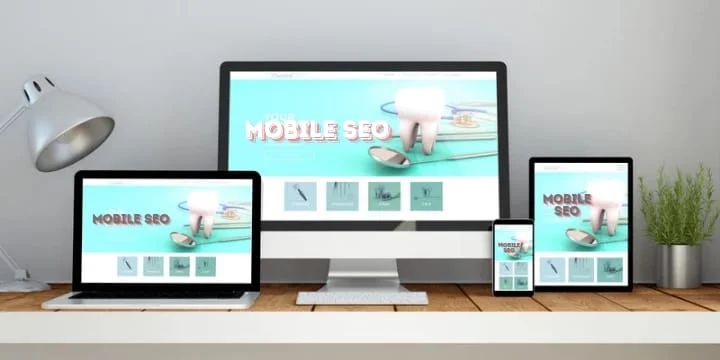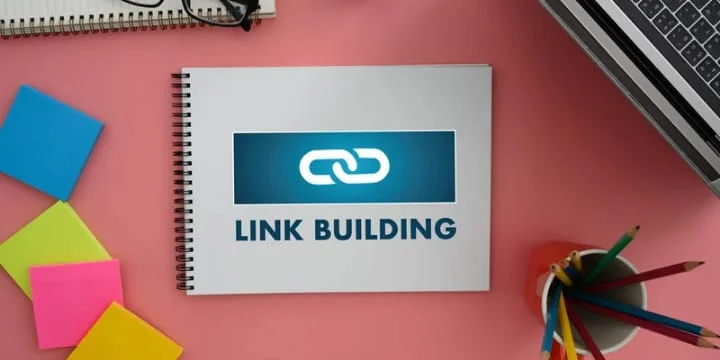Ever wonder why some local businesses seem to pop up everywhere online while others struggle to get noticed? It might surprise you to learn that the secret sauce often lies in how they use social media. In today’s digital age, having a strong local presence is key, and social media is one of the most powerful tools at your disposal to make that happen.
Local SEO, or Search Engine Optimization, is all about ensuring that your business shows up in local search results—whether someone’s searching for “best coffee shop near me” or “plumber in downtown.” But here’s the kicker: social media doesn’t just help you connect with your audience; it also plays a significant role in boosting your local SEO.
In this post, we’re going to dive into how you can leverage social media to elevate your local SEO strategy. From choosing the right platforms to engaging with your community, we’ve got you covered with actionable tips and real-life examples that will help your business stand out locally.
Understanding Local SEO
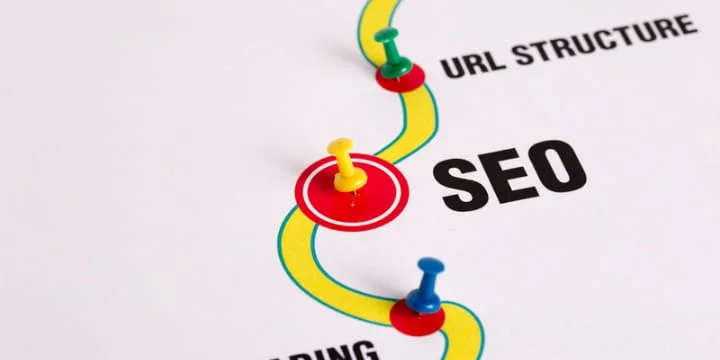
Local SEO is the art and science of optimizing your online presence so that your business ranks higher in local search results. Imagine someone in your town searching for a service you offer—local SEO is what gets your business to appear at the top of their search results. This is crucial for small businesses that rely on local customers, whether you’re a cozy café, a neighborhood bookstore, or a plumbing service.
But what exactly goes into local SEO? Here are a few key factors:
Google My Business (GMB) Listing: Your GMB profile is like your online business card. It includes essential details like your address, phone number, business hours, and customer reviews. Optimizing your GMB listing with accurate information and regular updates is a critical step in boosting your local SEO.
Local Citations: These are mentions of your business on other websites, such as online directories and review sites. Consistent and accurate citations across the web help search engines verify your business’s existence and reliability.
On-Page SEO: This involves optimizing your website’s content and structure for local search. Including your city or neighborhood in your website’s title tags, meta descriptions, and content can make a big difference in how you rank locally.
Reviews and Ratings: Positive reviews on Google and other platforms not only build trust with potential customers but also play a significant role in improving your local search rankings.
Now that you have a solid grasp on what local SEO is and why it’s vital, let’s explore how social media can be a game-changer for your local SEO efforts. Ready to dive into the role of social media in local SEO?
The Role of Social Media in Local SEO
Social media is more than just a platform for sharing updates and engaging with your audience—it’s a powerful tool that can significantly enhance your local SEO efforts. But how exactly does social media impact local SEO? Let’s break it down.
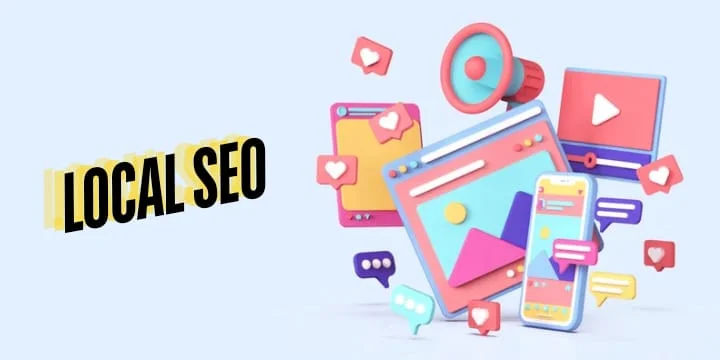
1. Social Media Signals
Social media signals refer to the activity and engagement your business generates on social platforms—likes, shares, comments, and overall interaction with your posts. While Google has stated that social media signals aren’t a direct ranking factor, they do play an indirect role in boosting your local SEO. High engagement on your social posts can lead to more visibility and traffic to your website, which can positively influence your search rankings.
2. Content Amplification
Every time you share content on social media, you’re amplifying its reach. When your content gets shared, liked, or commented on, it can attract more visitors to your site, leading to higher traffic and better search engine visibility. This is especially important for local businesses, as social media can help you reach a geographically targeted audience, boosting your local relevance.
3. Enhanced Local Presence
Using social media to regularly update your audience about your business, such as new products, special offers, or community involvement, can enhance your local presence. When people see your business actively participating in the local community, it builds a connection that goes beyond the screen. Plus, frequent updates and interactions on platforms like Facebook and Instagram can indirectly help your SEO by keeping your brand top-of-mind.
4. User-Generated Content and Reviews
Encouraging your customers to share their experiences and tag your business on social media can create valuable user-generated content. This type of content not only serves as free promotion but also provides social proof that can enhance your brand’s credibility. Moreover, linking positive social media reviews to your Google My Business profile can boost your local SEO by improving your business’s overall rating and trustworthiness.
5. Link Building Opportunities
Social media can also be a great avenue for building backlinks to your website. When your content gets shared widely, it increases the chances of other websites linking back to your original posts or website. Backlinks are a strong ranking factor in SEO, and acquiring quality backlinks through social media can give your local SEO a significant boost.
By understanding how social media influences local SEO, you can start to see how integrating these platforms into your SEO strategy can pay off. Next, we’ll explore how to choose the right social media platforms to maximize your local SEO impact
Choosing the Right Social Media Platforms
When it comes to leveraging social media for local SEO, not all platforms are created equal. The key is to choose the right ones that align with your business goals and target audience. Let’s explore the most effective platforms for boosting local SEO.

1. Facebook
Facebook is a powerhouse for local businesses. With its robust features like Facebook Business Pages, local groups, and the ability to run geo-targeted ads, it’s an ideal platform for connecting with your local audience. You can also use Facebook to share updates, engage with customers through comments, and gather reviews—all of which can help improve your local SEO.
Why It Works: Facebook’s extensive user base and local focus make it perfect for building community ties and driving local traffic to your business.
2. Instagram
Instagram is a visual platform that’s great for businesses with products or services that photograph well, like restaurants, boutiques, or salons. By using location tags and local hashtags, you can increase your visibility within your community. Instagram Stories and Reels also offer creative ways to showcase what’s happening at your business in real-time, which can attract local customers.
Why It Works: Instagram’s emphasis on visuals and its use of geotagging can significantly boost your local visibility.
3. Twitter
Twitter might not seem like the go-to for local businesses, but its real-time nature and hashtag use make it valuable for local engagement. You can participate in local conversations, use trending hashtags related to your area, and even connect with local influencers to boost your presence. It’s also a good platform for customer service and quick updates.
Why It Works: Twitter’s immediacy and local hashtag trends can help your business stay relevant and engaged within the local community.
4. LinkedIn
If your business is B2B or you’re looking to connect with local professionals, LinkedIn can be a powerful tool. It’s great for networking, sharing industry-specific content, and even joining local business groups. While it’s not as visually driven as Instagram or as community-focused as Facebook, LinkedIn can help you build credibility and establish your business as a local authority in your field.
Why It Works: LinkedIn’s professional focus and networking capabilities can enhance your local business reputation.
5. Nextdoor
Nextdoor is specifically designed for neighborhoods, making it an excellent platform for local businesses. It allows you to connect directly with people in your area, post updates, and even run local ads. This platform is especially effective for businesses that rely heavily on local clientele, such as home services or local retail shops.
Why It Works: NeXT door’s hyper-local focus makes it perfect for engaging directly with your community and driving local business.
Selecting the right platform is crucial, but knowing how to use these platforms effectively is even more important. Next, we’ll dive into actionable strategies for leveraging social media to boost your local SEO.
Strategies to Leverage Social Media for Local SEO
Now that you know which social media platforms are best for local SEO, it’s time to put them to work. Here are some actionable strategies to help you leverage social media and boost your local search rankings.

1. Create and Share Local-Focused Content
Content is king, and that’s just as true for social media as it is for SEO. To maximize your local SEO, focus on creating content that resonates with your local audience. This could include:
- Local News and Events: Share updates about local events, news, or issues that matter to your community.
- Behind-the-Scenes: Give your followers a peek behind the curtain with posts that showcase your team, your workspace, or how your products are made. This personal touch can build a stronger local connection.
- Customer Spotlights: Feature your loyal customers on your social media profiles. Not only does this show appreciation, but it also encourages others to engage with your business.
By regularly posting content that highlights your local involvement, you increase the chances of your business being top-of-mind when locals need your services.
2. Engage with Your Local Community
Social media isn’t just for broadcasting your message; it’s also for engaging in conversations. To boost your local SEO, actively engage with your community:
- Respond to Comments and Messages: Make sure to reply promptly to comments and messages. This shows that you’re attentive and values customer interaction.
- Join Local Groups: Participate in local Facebook groups or Twitter chats that are relevant to your business. Offer helpful advice, share your expertise, and subtly promote your services.
- Collaborate with Local Influencers: Partner with local influencers or other businesses to create content or host events. This can expand your reach to a wider local audience.
Engagement is a two-way street. The more you interact with your local community, the more likely they are to support and promote your business.
3. Use Hashtags and Geotagging Effectively
Hashtags and geotags are powerful tools for increasing your visibility on social media. Here’s how to use them:
- Local Hashtags: Include popular local hashtags in your posts to reach more people in your area. For example, if you’re a bakery in Chicago, you might use #ChicagoEats or #ChicagoBakery.
- Geotagging: When posting on Instagram or Facebook, use the geotag feature to tag your location. This helps your posts appear in searches for that specific area, attracting more local viewers.
- Create a Branded Hashtag: Encourage customers to use a specific hashtag related to your business, such as #YourBusinessName, when they post about their experiences. This can create a community around your brand and make it easier for others to find you.
Proper use of hashtags and geotags can significantly boost your local discoverability on social media platforms.
4. Encourage Reviews and Testimonials
Social proof is a powerful driver of local SEO. Encourage your satisfied customers to leave reviews on your social media pages, and make sure to:
- Ask for Reviews: After a successful interaction, ask your customers to leave a review on your Facebook page or mention you in a tweet. Positive reviews not only enhance your reputation but also contribute to your SEO.
- Share Testimonials: Post customer testimonials on your social media profiles. Highlight the positive experiences people have had with your business to build trust and credibility.
- Link to Your Google My Business: Occasionally remind your followers to leave a review on Google My Business. These reviews are directly tied to your local SEO, and the more positive feedback you get, the better.
Reviews and testimonials can help your business appear more credible and boost your rankings in local search results.
5. Run Geo-Targeted Social Media Ads
While organic reach is valuable, sometimes you need an extra push. Running geo-targeted ads on social media can help you reach a highly specific local audience:
- Target Specific Areas: Use the geo-targeting features on platforms like Facebook and Instagram to show your ads only to users in certain locations, such as your town or neighborhood.
- Promote Local Offers: Highlight special promotions, events, or products that are only available to local customers. This can drive more traffic to your physical location or website.
- Track Performance: Monitor the performance of your ads to see what’s working and adjust your strategy accordingly. Focus on the ads that bring in the most local traffic or leads.
Geo-targeted ads can be a cost-effective way to ensure that your marketing efforts are reaching the right people in your local area. With these strategies, you’ll be well on your way to using social media to enhance your local SEO. Next, let’s look at some real-life case studies of businesses that have successfully done this.
Case Studies: Success Stories of Local SEO Through Social Media
Learning from real-life examples can be incredibly valuable when trying to boost your own local SEO through social media. Here are a few success stories that illustrate how businesses have effectively leveraged social media to improve their local search rankings and drive local traffic.

1. Joe’s Coffee Shop
Joe’s Coffee Shop, a small neighborhood café in Seattle, used a combination of Instagram and Facebook to build a strong local presence. Here’s how they did it:
- Instagram Geotagging: Joe’s consistently posted photos of their daily specials and events, always tagging their specific location in Seattle. This simple step ensured that their posts appeared in local search results, attracting both residents and visitors to the shop.
- User-Generated Content: They encouraged customers to share their own photos of the café using the hashtag #JoesSeattle. This not only increased their visibility but also created a sense of community around their brand. The café then shared these posts on their own profile, further engaging their audience.
- Facebook Events: Joe’s used Facebook to promote local events like live music nights and coffee tastings. These events were geo-targeted to reach nearby users, and the increased foot traffic translated into better online reviews and higher rankings on Google.
Result: Within six months, Joe’s Coffee Shop saw a 30% increase in local traffic, a surge in social media followers, and a noticeable improvement in their local search rankings.
2. Bella’s Boutique
Bella’s Boutique, a trendy fashion store in Austin, Texas, took to social media to enhance their local SEO with impressive results:
- Facebook Reviews: Bella’s actively encouraged satisfied customers to leave reviews on their Facebook page. By consistently collecting positive reviews, they not only improved their online reputation but also boosted their rankings in local search results.
- Local Influencer Collaborations: The boutique partnered with local fashion influencers to showcase their latest collections. These influencers tagged Bella’s in their posts, which helped increase brand awareness and drove more local customers to the store.
- Instagram Stories and Ads: Bella’s used Instagram Stories to feature limited-time offers and new arrivals. They also ran geo-targeted ads on both Instagram and Facebook, specifically targeting users in Austin. These ads promoted in-store events and sales, driving foot traffic to their physical location.
Result: Bella’s Boutique saw a 40% increase in local search visibility and a significant rise in in-store purchases within a few months.
3. Mike’s Plumbing Services
Mike’s Plumbing Services, a small, family-owned business in Denver, leveraged Twitter and LinkedIn to improve their local SEO and expand their customer base:
- Twitter Engagement: Mike’s Plumbing used Twitter to engage with the local community by answering plumbing-related questions, sharing tips, and participating in local Twitter chats. This not only positioned them as a local expert but also increased their website traffic as people clicked through to learn more.
- LinkedIn Networking: They also used LinkedIn to connect with local businesses, offering their services to other small businesses in the area. By sharing helpful articles and engaging in professional discussions, Mike’s Plumbing built a strong network and gained referrals.
- Local Hashtags: The business consistently used local hashtags like #DenverPlumber and #ColoradoHomeRepair in their posts, which helped them reach more local customers searching for plumbing services.
Result: Mike’s Plumbing Services experienced a 50% increase in leads from their website and a boost in their Google My Business ranking, making them one of the top search results for plumbers in Denver.
These case studies show that with the right strategies, any business—no matter the size—can effectively use social media to improve local SEO. Next, we’ll discuss some common mistakes to avoid when using social media for local SEO.
Common Mistakes to Avoid When Using Social Media for Local SEO
While social media can be a powerful tool for boosting local SEO, it’s important to avoid some common pitfalls that could hinder your efforts. Here are the key mistakes to steer clear of:

1. Over-Promotion
Social media is about building relationships, not just selling. Constantly pushing promotional content can turn off your audience and lead to disengagement. Instead, focus on creating a balanced mix of content—promotional posts, informative articles, community engagement, and user-generated content.
What to Do Instead: Adopt an 80/20 rule, where 80% of your content is engaging and informative, and only 20% is promotional. This approach keeps your audience interested and more likely to interact with your posts, which benefits your local SEO.
2. Ignoring Analytics
Not tracking your social media performance is like driving blindfolded—you won’t know what’s working and what’s not. Analytics help you understand which content resonates with your audience, which platforms drive the most traffic, and how your efforts are impacting your local SEO.
What to Do Instead: Regularly check your social media analytics to see which posts get the most engagement, which times of day are best for posting, and how your social media traffic translates into website visits and conversions. Use this data to refine your strategy and focus on what works.
3. Neglecting Local Engagement
Simply posting content isn’t enough if you’re not actively engaging with your local audience. Failing to respond to comments, messages, or reviews can make your business appear unresponsive and hurt your local reputation.
What to Do Instead: Prioritize engagement by responding promptly to comments and messages. Participate in local online communities, and regularly interact with other local businesses and influencers. This builds stronger connections and can enhance your local SEO efforts.
4. Inconsistent Branding
Inconsistent branding across social media platforms can confuse your audience and weaken your brand identity. It’s important to maintain a consistent voice, style, and messaging across all platforms.
What to Do Instead: Ensure that your branding—logos, color schemes, tone of voice, and messaging—is consistent across all social media platforms. This not only strengthens your brand but also helps in building trust with your local audience.
5. Overlooking Mobile Users
A large portion of social media users access platforms via mobile devices. If your content isn’t optimized for mobile, you could be missing out on a significant chunk of your audience.
What to Do Instead: Make sure your social media content, including images and videos, is optimized for mobile viewing. Ensure that links you share lead to mobile-friendly pages, as this improves user experience and can positively impact your local SEO.
6. Not Leveraging User-Generated Content
User-generated content (UGC) is a goldmine for local businesses, yet many fail to leverage it. Ignoring UGC means missing out on authentic content that can boost your local SEO.
What to Do Instead: Encourage your customers to share their experiences and tag your business on social media. Share this content on your profiles to increase engagement and build social proof, which can enhance your local search rankings.
By avoiding these common mistakes and focusing on strategies that encourage engagement, consistency, and data-driven decisions, you can significantly improve your social media’s impact on your local SEO.
Next, let’s explore some tools and resources that can help you manage your social media and local SEO efforts effectively.
Tools and Resources to Boost Your Social Media and Local SEO Efforts
To effectively manage your social media presence and optimize for local SEO, the right tools can make a huge difference. Here are some of the best tools and resources to help you streamline your efforts and achieve better results.

1. Social Media Management Tools
Managing multiple social media platforms can be time-consuming, but these tools can help you schedule posts, monitor engagement, and analyze performance—all in one place.
- Hootsuite: Hootsuite is a comprehensive social media management tool that allows you to schedule posts across various platforms, monitor mentions, and track your social media performance. It’s great for keeping your social media efforts organized and efficient.
- Buffer: Buffer offers a simple way to schedule your posts, analyze their performance, and manage all your social accounts in one place. It’s particularly user-friendly and is ideal for small businesses.
- Sprout Social: This tool combines social media management, analytics, and customer engagement features. It also offers robust reporting tools that help you understand how your social media efforts are impacting your local SEO.
2. SEO Tools
To track and optimize your local SEO performance, these tools can provide valuable insights and help you make data-driven decisions.
- Google My Business: This free tool from Google is essential for any local business. It allows you to manage your business listing, interact with customers, and track your visibility in local search results. Make sure your listing is complete and regularly updated to boost your local SEO.
- Moz Local: Moz Local helps you manage your local listings across multiple platforms, ensuring your business information is accurate and consistent. It also provides insights into how your listings are performing in local searches.
- SEMrush: SEMrush is a powerful SEO tool that offers local SEO tracking, keyword research, and competitive analysis. It helps you identify the best keywords to target in your area and monitor your search rankings.
3. Content Creation Tools
Creating engaging, high-quality content is key to both social media success and local SEO. These tools can help you create and optimize content that resonates with your audience.
- Canva: Canva is a user-friendly graphic design tool that allows you to create stunning visuals for your social media posts. With customizable templates, you can easily design content that aligns with your brand.
- Grammarly: Grammarly helps you ensure that your social media posts and website content are error-free and polished. It’s an essential tool for maintaining a professional tone and avoiding mistakes that could hurt your credibility.
- BuzzSumo: This tool helps you discover trending topics and popular content in your niche. By understanding what’s resonating with your audience, you can create content that’s more likely to be shared and engaged with.
4. Review Management Tools
Managing and responding to online reviews is crucial for local SEO. These tools can help you keep track of your reviews and respond to them efficiently.
- Yext: Yext allows you to manage your business information across various directories and respond to reviews from one platform. It ensures that your business details are consistent and up-to-date, which is critical for local SEO.
- Reputation.com: This tool focuses on managing your online reputation by monitoring and responding to reviews, collecting customer feedback, and analyzing your reputation score.
- Birdeye: Birdeye helps you manage reviews from multiple sites, gather customer feedback, and improve your overall reputation. It’s particularly useful for small businesses looking to boost their local SEO through positive reviews.
5. Analytics and Reporting Tools
Understanding the impact of your social media and SEO efforts is key to continuous improvement. These tools offer detailed analytics and reporting to help you track your progress.
- Google Analytics: Google Analytics provides comprehensive insights into your website traffic, including how visitors find your site, what content they engage with, and how they convert. It’s essential for measuring the impact of your social media efforts on your local SEO.
- Facebook Insights: If you’re using Facebook for your local SEO, Facebook Insights provides valuable data on how your posts are performing, who your audience is, and how they’re interacting with your content.
- Instagram Insights: Instagram Insights gives you data on your followers, engagement rates, and the performance of your posts. It’s crucial for understanding how your Instagram efforts contribute to your local visibility.
By leveraging these tools, you can optimize your social media strategy, improve your local SEO, and ultimately drive more traffic to your business.
Conclusion
In today’s digital landscape, local SEO and social media are more interconnected than ever before. By strategically leveraging social media platforms, you can significantly boost your local search rankings, drive more traffic to your business, and build a stronger connection with your community. Whether you’re sharing local-focused content, engaging with your audience, or using geo-targeted ads, every effort counts toward enhancing your local presence online.
Remember, the key to success lies in consistency and engagement. Avoid common mistakes like over-promotion and neglecting analytics, and instead, focus on creating valuable content and interacting with your local community. With the right tools and strategies in place, you can turn your social media platforms into powerful engines that fuel your local SEO.
So, why wait? Start implementing these strategies today and watch as your business climbs the local search rankings, attracts more customers, and becomes a go-to name in your community.
